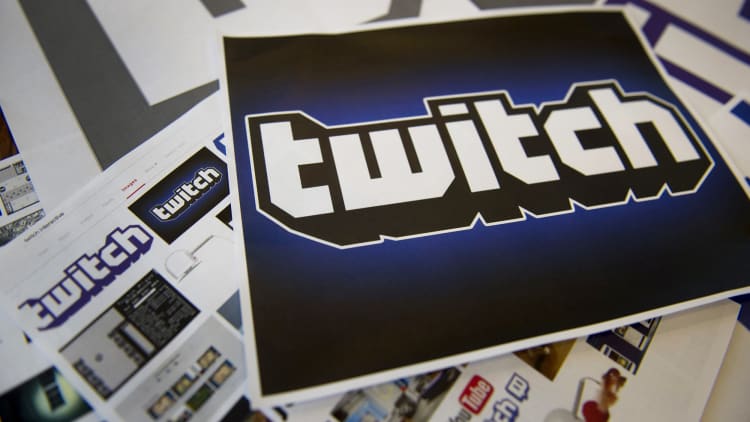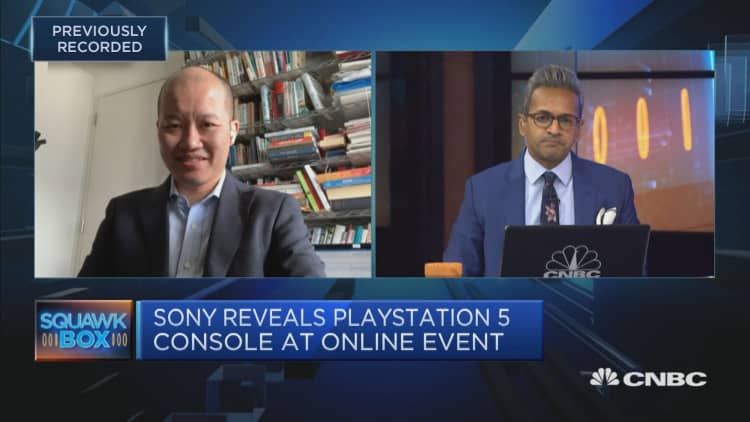Microsoft is going head-to-head with Amazon in cloud computing and in recruiting top tech talent in the Seattle area. But when it comes to livestreaming video games, Microsoft is bowing out of a market where Amazon is surging.
Four years after buying game streaming start-up Beam and later rebranding it as Mixer, Microsoft said last week that it will stop operating the service in July, and encouraged users to adopt a similar service from Facebook. Many of the users went to Twitch, the competitor that Amazon bought for almost $1 billion in 2014 and, by one analyst's recent estimate, is now worth about $15 billion.
The outcome represents a stumble for Satya Nadella's Microsoft, whose stock has multiplied fivefold since Nadella succeeded Steve Ballmer at the helm in 2014. Microsoft is giving up on a growing market at a time when it's promoting other gaming products like Xbox consoles and popular online game Minecraft. Even the co-founder of Beam said Nadella was making the right call when considering Microsoft's bottom line.
"Live video makes no sense from a unit economics standpoint," said Matt Salsamendi, who helped start Beam in 2014 and left Microsoft last year, in an interview.
Mixer is a costly operation. It delivers video streams using a protocol called faster than light, or FTL, which promises speed so rapid that streamers can instantly respond to what audience members are telling them in chat messages.
Microsoft tried various tactics to help Mixer grow. It wove Mixer into the Game Bar on Windows 10 and delivered a Mixer app for Microsoft's Xbox One console, making it easy for gamers to broadcast their play sessions. It added support for many languages and developed a way for people to buy games that they were watching streamers play.
Last year, Microsoft went further, adding a virtual currency called Embers that audience members could buy to display stickers in chat messages. It also paid prominent streamers to join Mixer and ditch Twitch.
After the coronavirus struck earlier this year, Mixer's deficit in the market became too much to overcome. In April, with offices and schools closed across the U.S. and much of the world, consumers spent 1.5 billion hours watching Twitch, twice the amount of time from the same period in 2019, according to a report from live-streaming software company StreamElements and Lightstream. Mixer use, meanwhile, was flat at 37 million hours.

"It became clear that the time to grow our own livestreaming community to scale was out of measure with the vision and experiences we want to deliver to gamers now," a Microsoft spokesperson told CNBC in a statement. "So we're shifting our focus to deliver upon that vision."
Microsoft plans to promote the Xbox Series X console and the xCloud streaming service, expected later this year, and it's still building up the all-you-can-eat Xbox Game Pass business, which recently passed 10 million subscribers.
Microsoft has, in the past, operated unprofitable businesses viewed as important to the overall company. For years, Microsoft's Bing search engine lost money, but in 2015 it became profitable. LinkedIn, which Microsoft acquired for $27 billion in 2016, lost money through 2018. As the company's largest acquisition ever, it represents a longer-term bet.
The Beam acquisition was so small that its performance won't do much, if anything, to overall earnings. That makes it much more palatable to investors than the 2007 acquisition of aQuantive and the 2013 purchase of Nokia's devices and services business, which cost $6.3 billion and $9.5 billion, respectively. Both of those deals led to substantial writedowns.
In this case, analysts say, Microsoft is making a prudent financial call. Days after announcing the shuttering of Mixer, Microsoft said it would close its physical stores around the world. In a note to clients on Friday, Brad Reback and Adam Borg of Stifel said both make sense.
"Net/net, we believe this move, coupled with Microsoft's decision to abandon Mixer (e-gaming live-streaming platform) earlier this week, continues to demonstrate the company's commitment towards not chasing good money after bad," wrote the analysts, who have a buy rating on the stock. They added that Microsoft can instead focus "investments towards higher growth opportunities."
WATCH: Sony and Microsoft are waiting to see who blinks first on console pricing: Analyst



